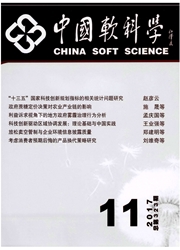

 中文摘要:
中文摘要:
本文通过企业家才能配置模型对中国历史上的土地兼并与英国圈地运动产生的经济效应之间的差异进行了比较分析。分析表明,中英制度环境的不同决定了两国企业家在生产性活动和非生产性活动之间的配置存在着差异。圈地运动时期英国的制度环境促使地主阶层成为一个经营者阶层,从而推动了资本主义农场的兴起、技术革新和农业飞跃发展;而传统中国社会的制度环境则鼓励企业家流向官僚阶层,官僚阶层兼并土地后并不直接经营,而是成为食利阶级从土地所有权中获取收入,因而阻碍了资本主义农场的发展,抑制了技术创新和经济增长。
 英文摘要:
英文摘要:
Using a model concerning the allocation of entrepreneurial talent, this paper analyzes the differences of economic effect between Chinese land annexation and British enclosure movement. It shows that the differences of institutional environment between Britain and China determine their differences of entrepreneurship allocation mode. During the enclosure movement, British institutional environment promoted landlords as a class of operators, thereby promoted the rise of capitalist farm, technological innovation and agricultural development. But in traditional China, the institutional environment encouraged entrepreneurs to flow into bureaucracy, the bureaucracy annexed land and became a parasitic class, Thus prevented the emergence of capitalist farm, restricted technological innovation and economic growth.
 同期刊论文项目
同期刊论文项目
 同项目期刊论文
同项目期刊论文
 Separation Transformation and New Exact Solutions for the (1+N)-Dimensional Triple Sine-Gordon Equat
Separation Transformation and New Exact Solutions for the (1+N)-Dimensional Triple Sine-Gordon Equat Matter wave soliton solutions of the cubic-quintic nonlinear Schrodinger equation with an anharmonic
Matter wave soliton solutions of the cubic-quintic nonlinear Schrodinger equation with an anharmonic 期刊信息
期刊信息
